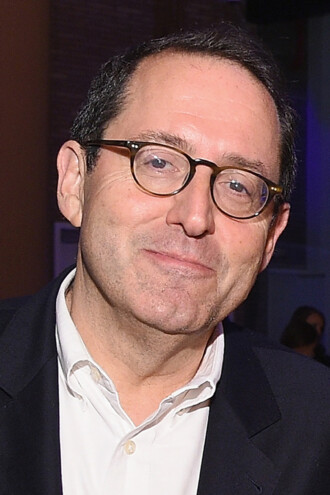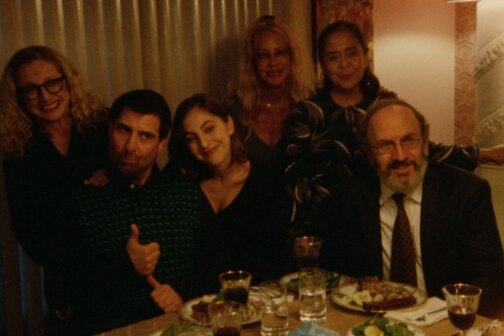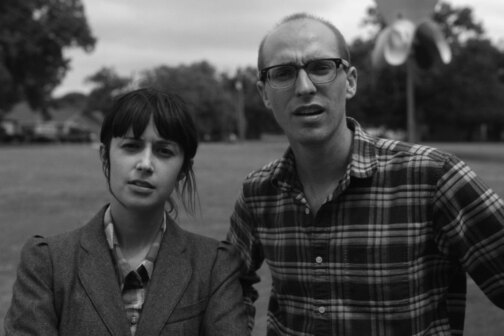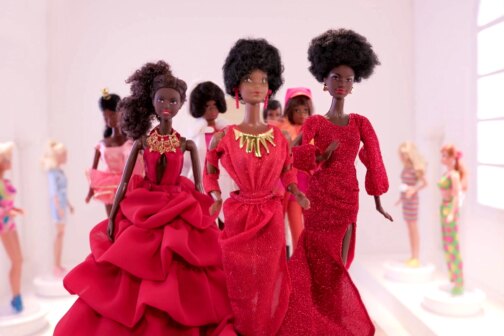You might not know the name or face of Oak Cliff native Michael Barker, the co-president of Sony Pictures Classics, but if you’re any sort of movie buff, you’ve seen the work he helped bring into existence: 187 Oscar-nominated features to be exact, spread out over stints at two studios. A short list: Crouching Tiger, Hidden Dragon; Wings of Desire; Midnight in Paris; Howard’s End; Whiplash; Ran; Mystery Train; My Beautiful Laundrette; Call Me By Your Name; and Cyrano de Bergerac. But the filmography is so vast that you could make another short list with different titles, then another, and barely have scratched the surface of Barker’s contributions.
Barker will be at the Oak Cliff Film Festival June 21 and 23 to present two new films, Kneecap and Between the Temples. He became a cinema obsessive in junior high and high school in the late 1960s. After graduating from Kimball High School in 1972, Barker went to the University of Texas at Austin, where he got a speech communications degree and became a student film programmer on the side. After graduation, he continued to work in film booking and distribution and eventually ended up co-founding Orion Pictures Classics. After Orion closed, he helped found Sony Pictures Classics in 1992. Barker has been at SPC ever since.
Barker is legendary in the industry not just for his keen eye for new talent (it was Barker, for instance, who discovered Richard Linklater’s debut film Slacker) but for his willingness to put his sneakers on the ground in the name of the job. He spends a good portion of his year traveling to represent SPC films at festivals, ranging in prominence from Cannes, Sundance, and Venice to new and/or hyper-local festivals where Barker might be the only person listed in the program who’s from out-of-town. He says that smaller festivals like the one happening this weekend in Oak Cliff are where the value of cinema is reaffirmed, and its future audience cultivated.
“Film festivals are the lifeline of independent film,” he said. “They always have been, and they continue to be.”
The conversation below has been edited for length and clarity.
Tell me about Dallas.

I lived in Oak Cliff through my junior high school and high school years, and then I went to UT Austin. I feel like I grew up in Oak Cliff. That theater where the festival is taking place is the one I used to go to all the time to see the latest John Wayne movies. It was a really major movie theater. I grew to love film in Oak Cliff. Several friends of mine and I would go to the movies all the time. I’d go to that drive-in on Fort Worth Avenue, the one they showed in that Errol Morris documentary The Thin Blue Line in the scene where the two guys went to see the double-feature. And, you know, back then, Oak Cliff was the dry area of town. It was not what it is today. Oak Cliff with the Texas Theatre the way it is today is a much cooler place than I remember when I was going to the drive-in in Oak Cliff to see The Green Berets.
When did you transform from being a person who liked movies into a movie person?
My parents were divorced when I was five or six. I went to live with my father. We moved to Texas when I was 14. I remember that in an airport I got a paperback book, the Andrew Sarris book The American Cinema: Directors and Directions—you know, the one introducing Americans to the auteur theory and lining up all the different directors in all these different categories. I could not make any sense of it. I didn’t know how to read that book. I didn’t understand it at all!
But there was this friend of mine in high school, Ed Lowry. I showed him that book. And he and I read through it. Ed became an incredible film scholar at SMU and went to graduate school at University of Texas and was one of the founding editors of The Austin Chronicle and the first film editor there. He passed away in the ‘80s. Ed kind of interpreted that book for me. We would watch movies on TV, or go wherever we could to keep up with, you know, the “Pantheon Directors” and “The Far Side of Paradise” and all those other different groupings of directors that Sarris made up. That book was kind of my film school, The American Cinema. I had another high school friend that I went to movies with. His name was Tim Choate. He and I moved to New York after graduating from the University of Texas, to kind of make our way. Tim was an actor, and he became a successful actor. He also passed away, in 2004.
Anyway, the fact of the matter is, my roots were in Oak Cliff, and I wasn’t exactly a stellar student. But my obsession with film really started there. And there were so many places to see films there, you know? There was the Wynnewood Theater. There was the Vogue Theater on Jefferson, which was right next door to Sunset High School. It’s a church now. That was the theater where movies like The Lion in Winter premiered, and where they played the 30th anniversary reissue of Gone with the Wind.
You have a great memory for these sorts of details.
I think I can remember every film I ever saw in those days, and where I saw it.
What was your first film festival experience?
When I was a junior in high school, I skipped school to go to the USA Film Festival across the river at Southern Methodist University. And that’s where I met Roger Ebert. Roger was a guest there. They did a program in honor of George Stevens. A year after that, when I was a senior, I skipped school again with some friends and went [to the festival] to see some Frank Capra movies, and that’s where they premiered What’s Up, Doc? I met Peter Bogdanovich there.
How old were you?
Oh, my God! I was 18.
And yet somehow you didn’t get a degree in film at UT Austin. How come?
I don’t know. I guess at that time I always thought film was just kind of an escape into a more exciting life than the one I was living in Oak Cliff.
Tell me about the first of the two movies you’re bringing to the Oak Cliff Film Festival: Kneecap.
It’s an original, in a way, it’s about hip-hop and the energy of the Irish language. I feel about in kind of the same way that, when I was young, I felt about A Hard Day’s Night, you know, where it’s about a real group, but it really isn’t? They’re playing it like they’re fictional characters running around. It’s really energizing. The use of language and music is amazing, and it builds in a special way.

You also have the closing night movie, Between the Temples.
Yeah, directed by Nathan Silver. That one has actually been a favorite at several film festivals. It stars Carol Kane and Jason Schwartzman. Jason plays a young cantor whose wife has passed away, and Carol Kane is a much older woman who wants a Bat Mitzvah. It’s about a relationship that no one really feels should be, and you see the tension it causes in the two families, a Jewish family and a Gentile family. It’s very well-done.
Have you seen Daddio?
The one with Sean Penn and Dakota Johnson? No, not yet.
We’re opening that one next week. June 28, everywhere. It’s written and directed by Christy Hall. Sean Penn is a driver, Dakota is his passenger, and the whole thing takes place in a car. And it’s pretty seamlessly done visually by Phedon Papamichael, the [cinematographer] who did Nebraska. You can’t tell that they mostly did this with LED lights and backdrops. I wanted to be sure to mention it here, because I think it’s a major work that people should see.
I see you at big festivals like the New York Film Festival and South by Southwest. But I also see you at smaller festivals, like Ebert Fest at the University of Illinois in Champaign-Urbana, and the Oak Cliff Film Festival. Sometimes the only person associated with a Sony Pictures Classics release that’s screening at a smaller festival will be the co-president of Sony. You know that’s now how it’s usually done! What’s the thinking?
Film festivals are the lifeline of independent film. They always have been, and they continue to be. I actually think festivals are more important now than ever before—the smaller ones maybe most of all, because in some towns and neighborhoods, the local film festival is the last vestige of seeing quality film on a big screen, and it encourages people to go see quality films on a big screen, year in and year out. I go to Ebert Fest every year. And I have to say, it’s an inspiring event for me to meet the people that are there. And I mean the viewers! You know, like that interview I did at Ebert Fest with Wim Wenders, when they showed Wings of Desire?
Wenders Skyping in on a gigantic screen over our heads. Incredible event.
Yeah! It was in that huge old theater. It was 12:30 at night in Europe where [Wenders] was. And all those students in that theater were so turned on by that film. You know, that’s probably my favorite film I’ve ever released, Wings of Desire.
This has been quite a journey for you.
When I became a senior in college, this professor who was like a mentor to me said, “You are not going to believe where you are going to be in 10 years.” I was like, ‘Well, ok, sure!’ Ten years later, Tom Bernard and I were with Akira Kurosawa at the Oscars with his film Ran, and I was pinching myself, going, ‘I’m a kid from Oak Cliff. How did this happen?’
I’ve used that line on a lot of people since then: you are not going to believe where you are going to be in 10 years.
Kneecap premieres on Friday night at 7 p.m. at the Texas Theater. Between the Temples closes the festival at 8 p.m. on Sunday at the Texas. Tickets and badges are available here.
Author






